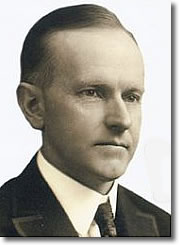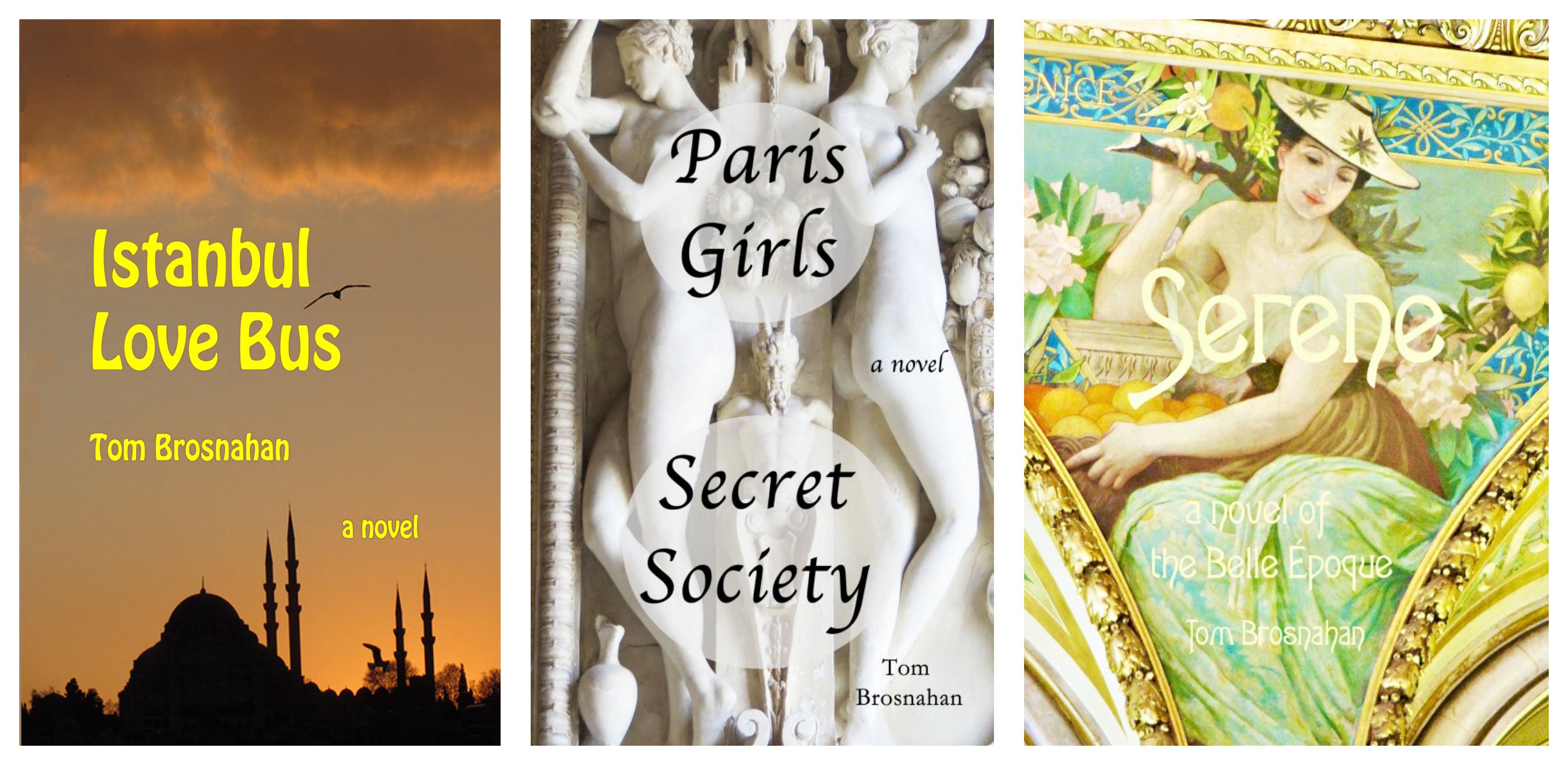(John) Calvin Coolidge Jr, President
"Callow Cal" presided over unprecedented prosperity in the United States. Honest and forthright but with flawed economic policies, he did not run for a second term, leaving his successor, Herbert Hoover, to bear the burden when the economy collapsed.
(John) Calvin Coolidge Jr (1872-1933) was the 30th President of the United States.
Born in Plymouth, Vermont, on July 4th, he graduated from Amherst College in 1895 and settled in Northampton MA to practice law.
He soon ran for local office, and by 1914 was president of the Massachusetts Senate, then lieutenant-governor, and finally governor (1919-1920) of the state.
His use of the state militia to break the Boston police strike of 1919 brought him national notice.
Elected vice-president in the Republican Harding administration (1920), his personal honesty protected him from Harding's corruption scandals.
Upon receiving the news of Harding's death (August 2, 1923), Coolidge took the oath of office at 2:47 am on August 3rd in his Vermont boyhood home, where he had gone on vacation. His father, John Coolidge, the local notary public, administered the oath by the light of a kerosene lamp, as the house had neither electricity nor telephone.
The only president to have been born on Independence Day, Coolidge served out the remainder of Harding's term (1923-1925) and then, having won the 1924 election, served from 1925 until March 4, 1929.
Political Philosophy
His political philosophy was one of laissez-faire toward business, less spending for government, and tax cuts for everyone, policies later revived by President Ronald Reagan.
After World War I, some people wanted the US to forgive the war loans it had made to Europe because of the hardship it would cause the devastated countries to repay them. Coolidge's response was "They hired the money, didn't they?"
The raging prosperity during his time in office (1923-1929) cast a warm glow on him personally and seemed to confirm the wisdom of his policies, which historians now believe contributed to the economic crisis of 1929 and the subsequent Depression.
As he (later) put it so astutely, "When a great many people are unable to find work, unemployment results."
Coolidge chose not to run for a second elected term (even though he probably would have won), instead supporting the candidacy of Herbert Hoover, his Secretary of Commerce. This proved wise, as the economic crisis occurred after Coolidge had left office.
Character & Personality
His New England honesty and down-to-earth simplicity served him well in politics, and contributed greatly to his popularity.
Although he frequently used the press and radio to communicate with the American people, he was famously taciturn in private conversation, and disliked chit-chat. As he put it, "I've noticed that nothing I've never said has hurt me."
A woman who sat next to Coolidge at a dinner party once bet that she could get him to say at least three words. Coolidge didn't even look at her as he answered "You lose."
Coolidge was famous for sleeping at least eight hours each night, taking long naps during the day, and not even opening his mouth during interviews. In 1933 when someone told New York poet, wit and writer Dorothy Parker that Coolidge was dead, her response was "How can they tell?"
His last will and testament was 23 words long.
His boyhood home in Plymouth VT is now a museum, and Coolidge descendants ran the local cheese factory for many years. More...

